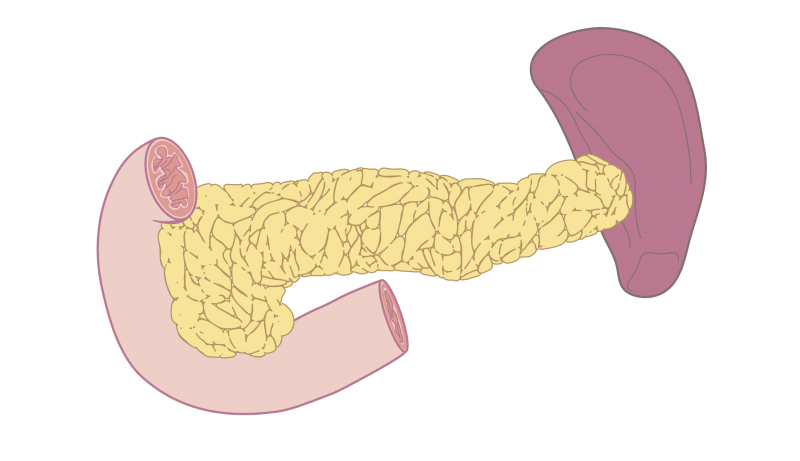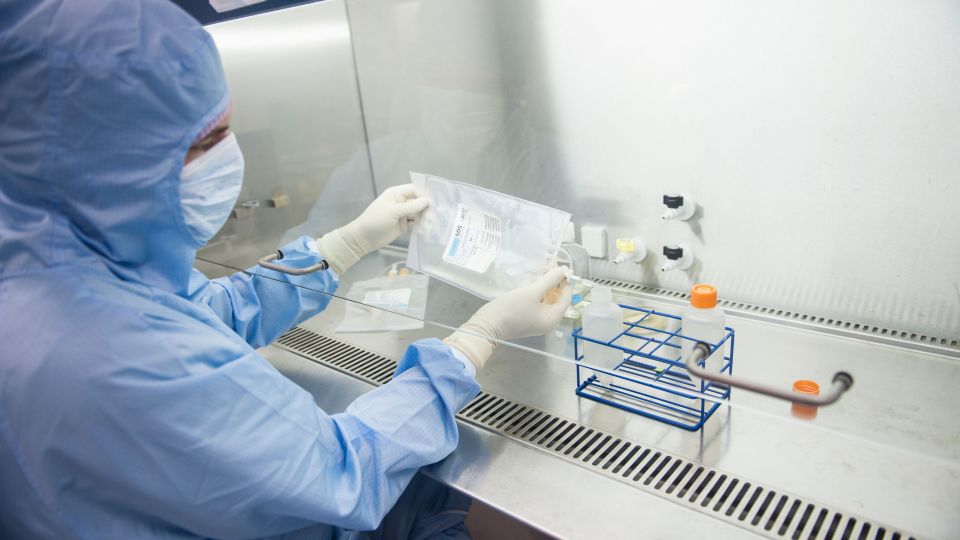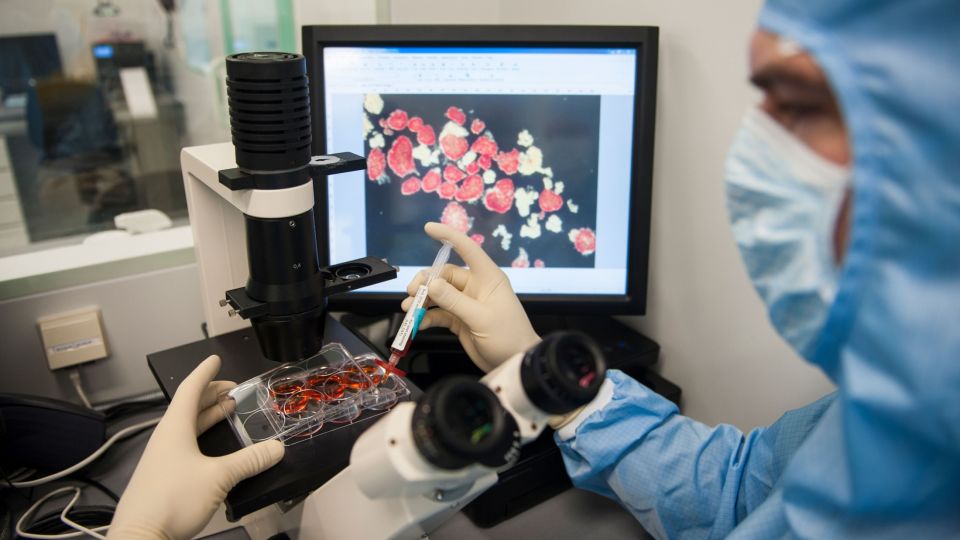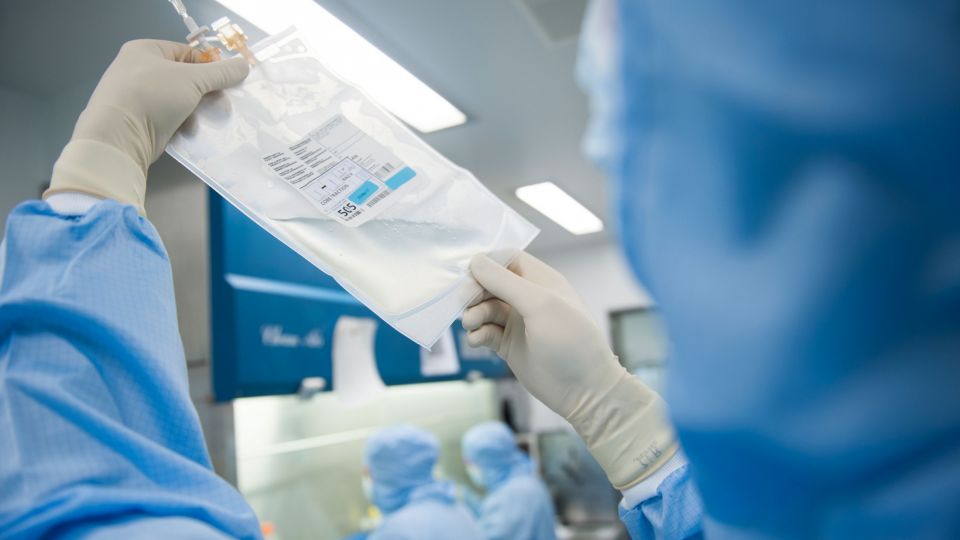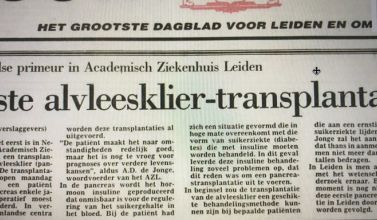Pancreas and islet of Langerhans transplantation
In LUMC, ẞ-cell replacement therapy is an integrated program consisting of pancreas transplantation (since 1984) or islet transplantation (since 2007). To improve transplant outcome, research focuses on enhanced human islet isolation through the development of an automated islet separation machine. Better isolation and preservation techniques and the design and use of scaffolds to create alternative transplantation sites will all result in improved islet function and survival. The use of these new techniques will allow transplantation with a smaller amount of ẞ-cells to be just as effective, enabling us to treat more patients with the same amount of cells.
Future solution: cell therapy for type 1 diabetes
ẞ-cell replacement therapy is currently limited to a small number of patients with severe ẞ-cell failure due to the scarcity of organ donors. LUMC investigates the use of adult human exocrine pancreatic tissue for regenerative purposes. These cells can be isolated from the islet-depleted pancreatic tissue after islet purification and are thus an attractive source for reprogramming and expansion towards functionally active ẞ-cells. Also, the use of islet progenitor cells as well as induced pluripotent stem cells are investigated. This could potentially provide an unlimited supply of ẞ-cells.
Pancreas function and disease
The pancreas is located behind the stomach and is part of the endocrine and digestive system, where it produces enzymes and hormones that aid in digestion of ingested food. Pancreatic islets of Langerhans constitute 1-2% of the pancreas and produce the hormones insulin, glucagon and somatostatin. These hormones together maintain a healthy blood glucose level. Type 1 diabetes is caused by the autoimmune destruction of insulin producing ẞ-cells in the pancreatic islets of Langerhans. An estimated 387 million people have diabetes worldwide, of which type 1 diabetes accounts for between 5% and 10%. For patients with type 1 diabetes, exogenous insulin administration to control blood glucose is a lifesaving treatment, but it also has a negative impact on personal and social functioning. When blood glucose homeostasis is not well-maintained complications can occur affecting the heart, eye and/or kidney.
